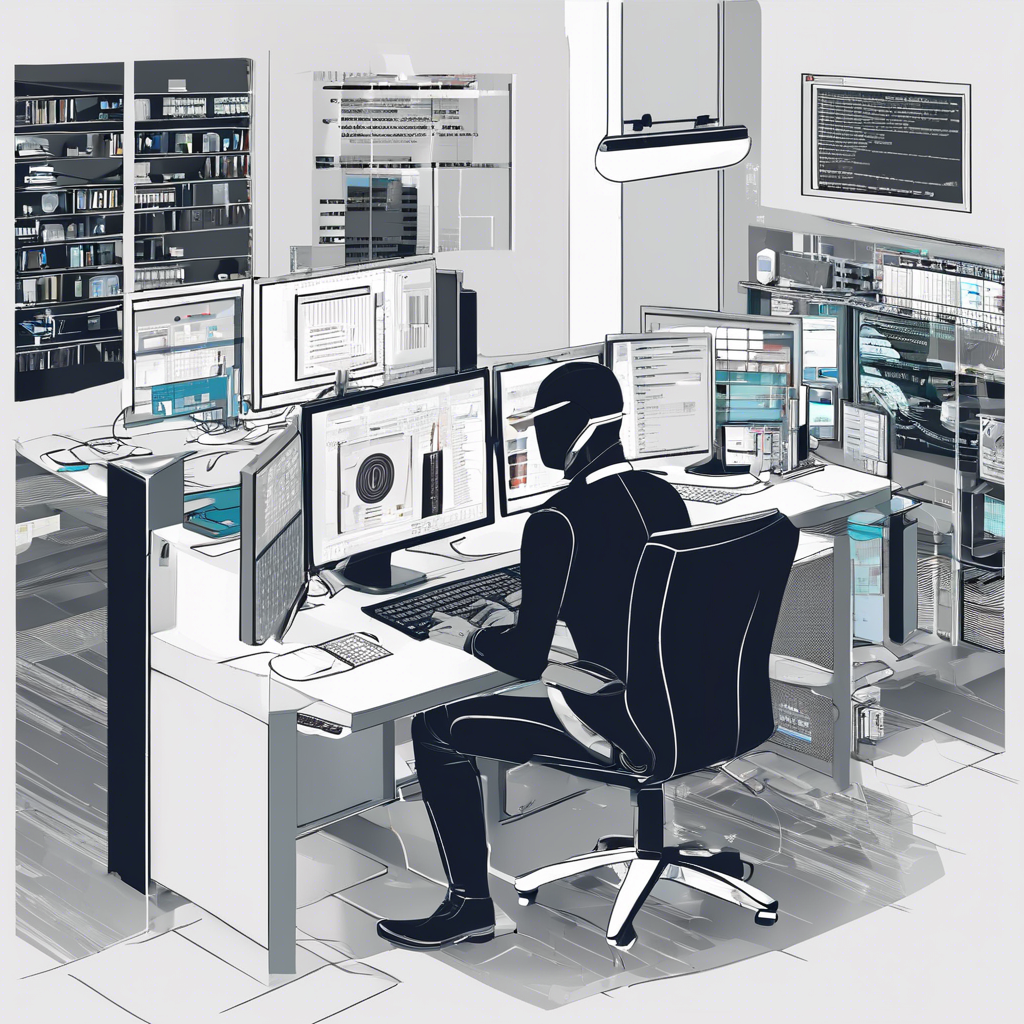Cybersecurity has become an essential part of our daily lives, affecting everything from personal devices to global organizations. With increasing cyber threats, everyone—whether an individual, an employee, or a business owner—has a role to play in ensuring digital security. Understanding the fundamentals of cybersecurity and recognizing your responsibilities in protecting sensitive data can help prevent cyberattacks and safeguard digital assets.
Understanding Cybersecurity
Cybersecurity refers to the practice of protecting computer systems, networks, and data from cyber threats such as hacking, malware, phishing, and ransomware attacks. As technology advances, so do the tactics of cybercriminals, making it crucial to adopt robust security measures. Cybersecurity encompasses various domains, including network security, information security, cloud security, and endpoint protection.
Governments, corporations, and individuals must work together to create a secure digital environment. Cyberattacks not only result in financial losses but can also compromise national security, disrupt essential services, and harm reputations.
The Growing Cyber Threat Landscape
The digital world is evolving, and so are cyber threats. Hackers and cybercriminals continuously develop sophisticated techniques to exploit vulnerabilities in systems. Common threats include:
- Phishing Attacks: Fraudulent emails or messages designed to trick users into revealing personal information.
- Malware and Ransomware: Malicious software that damages or restricts access to data until a ransom is paid.
- Data Breaches: Unauthorized access to sensitive information, often leading to financial fraud or identity theft.
- Distributed Denial of Service (DDoS) Attacks: Overloading a website or system with excessive traffic, making it inaccessible.
- Insider Threats: Employees or contractors misusing their access to harm an organization.
Cybercriminals often target individuals and businesses through weak passwords, outdated software, and unprotected networks. Understanding these risks is the first step in strengthening cybersecurity defenses.
Your Role in Cybersecurity
Regardless of your profession or level of technical expertise, you have a responsibility to protect digital assets. Here’s how you can contribute to cybersecurity in different roles:
As an Individual
Individuals must adopt safe online practices to protect their personal information and prevent cyber threats. Key actions include:
- Using Strong Passwords: Create complex passwords and enable multi-factor authentication (MFA) for added security.
- Keeping Software Updated: Regular updates help patch security vulnerabilities in applications and operating systems.
- Avoiding Suspicious Links: Be cautious when clicking on email links or downloading attachments from unknown sources.
- Securing Personal Devices: Use antivirus software, enable firewalls, and encrypt sensitive data on devices.
- Practicing Safe Social Media Habits: Limit the sharing of personal information to reduce the risk of identity theft.
As an Employee
Employees play a vital role in protecting their workplace from cyber threats. Businesses rely on staff to follow security protocols and prevent data breaches. Employees should:
- Recognize Phishing Attempts: Learn how to identify fake emails and report them to IT security teams.
- Follow Company Security Policies: Adhere to guidelines on password management, software updates, and data handling.
- Use Secure Networks: Avoid using public Wi-Fi for work-related tasks and connect through VPNs when necessary.
- Protect Confidential Information: Ensure that sensitive business data is encrypted and stored securely.
- Be Aware of Insider Threats: Report any suspicious activities or potential security breaches to management.
As a Business Owner or Organization Leader
Companies must invest in cybersecurity measures to protect customer data and business operations. Key responsibilities include:
- Implementing Cybersecurity Frameworks: Adopt industry standards such as NIST or ISO 27001 to create a secure infrastructure.
- Training Employees: Conduct regular cybersecurity awareness programs to educate employees on threats and best practices.
- Securing Business Networks: Use firewalls, intrusion detection systems, and endpoint protection to prevent cyberattacks.
- Developing Incident Response Plans: Prepare for potential breaches by having a clear action plan to mitigate damage.
- Ensuring Regulatory Compliance: Follow data protection regulations like GDPR or CCPA to avoid legal issues.
The Importance of Cyber Hygiene
Cyber hygiene refers to routine practices that individuals and organizations must follow to maintain cybersecurity. Similar to personal hygiene, these practices help prevent security breaches and data leaks. Essential cyber hygiene habits include:
- Regularly Updating Software and Security Patches
- Using Password Managers to Store and Generate Secure Passwords
- Enabling Two-Factor Authentication (2FA) for Online Accounts
- Backing Up Important Data to a Secure Location
- Using Encrypted Communications for Sensitive Transactions
By making cyber hygiene a daily habit, users can significantly reduce their vulnerability to cyber threats.
Future Trends in Cybersecurity
With the rapid evolution of technology, cybersecurity will continue to adapt to new challenges. Emerging trends include:
- Artificial Intelligence (AI) in Cybersecurity: AI is being used to detect and respond to cyber threats in real time.
- Zero Trust Security Models: Organizations are shifting to a security model that requires continuous verification of users and devices.
- Cloud Security Enhancements: With more businesses migrating to cloud services, advanced security measures are being developed to protect cloud data.
- Quantum Computing Threats: As quantum computers advance, they may pose risks to current encryption methods, requiring stronger security protocols.
- Biometric Authentication: Fingerprint scans, facial recognition, and other biometric security methods are becoming more common for identity verification.
Conclusion
Cybersecurity is no longer just an IT issue—it is a collective responsibility that affects everyone. Whether you are an individual securing personal accounts, an employee safeguarding workplace data, or a business leader implementing security policies, your role in cybersecurity is critical. By staying informed, practicing cyber hygiene, and adopting security best practices, you can help build a safer digital world. As cyber threats continue to evolve, staying proactive and vigilant is the key to protecting valuable information and maintaining digital trust.

